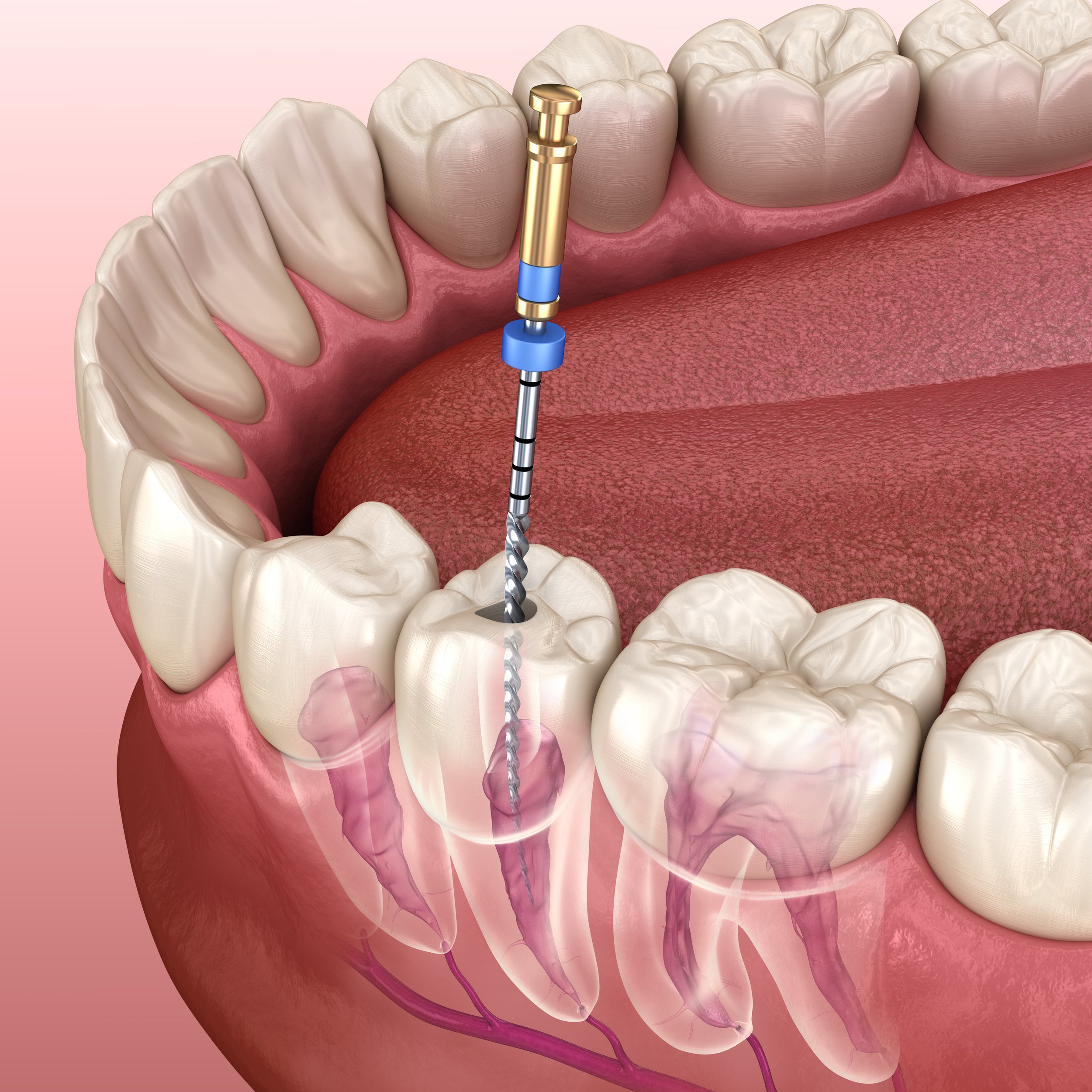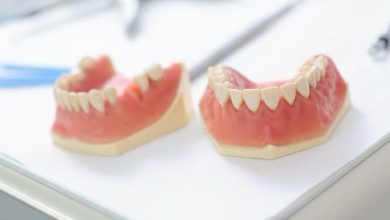Can a Tooth With a Root Canal Hurt? Discover the Truth Behind the Pain

Yes, a tooth with a root canal can still sometimes cause pain. A root canal is a dental procedure that removes infected pulp from the tooth, but there can be instances when pain persists or recurs due to various reasons.
Root canals are dental procedures performed to alleviate pain and save teeth with infected or severely damaged pulp. While the procedure aims to eliminate discomfort, there are situations where the tooth with a root canal can still hurt. This article will explore the possible reasons why pain may persist or resurface after a root canal and discuss when it is necessary to seek further treatment.
Understanding the potential causes of post-root canal discomfort is vital for individuals who have undergone the procedure or are considering it. By exploring these factors, one can make informed decisions about their oral health and seek appropriate treatment when necessary.

Credit: ccdental.com.au
Root Canal And Pain: A Common Concern
Understanding the myths surrounding root canal pain is crucial in dispelling common misconceptions. Many people believe that root canals are excruciatingly painful, causing fear and anxiety. However, this is far from the truth. Root canal therapy is performed to alleviate pain, not cause it.
The pain associated with root canals is often a result of the infection or inflammation in the tooth, rather than the procedure itself. The root canal procedure is aimed at removing the infected pulp to save the tooth and eradicate the pain.
Modern advancements in dentistry have made root canals virtually painless with the use of local anesthesia. Dentists prioritize patient comfort and ensure a pain-free experience throughout the procedure.
So, if you’re concerned about the pain of a tooth with a root canal, rest assured that the procedure itself is typically painless and designed to relieve discomfort. It is important to consult with a qualified dentist to address any questions or fears you may have.
Factors That May Cause Post-root Canal Discomfort
Inflammation and sensitivity: After a root canal treatment, it is common to experience inflammation and sensitivity in and around the treated tooth. This is part of the normal healing process and typically resolves within a few days or weeks.
Persistent infection: In some cases, a root canal may not fully resolve the infection, leading to lingering pain or discomfort. This can happen if the tooth has complex anatomy or if the infection was severe before the treatment. Additional treatment or a retreatment may be required to fully address the infection.
Cracked tooth syndrome: Sometimes, a tooth that has undergone a root canal procedure may develop cracks or fractures, which can cause pain or discomfort. Cracked tooth syndrome typically occurs due to factors such as excessive force on the tooth, clenching or grinding, or an incomplete restoration. Treatment options may include crown placement or extraction, depending on the severity of the crack.
Nerve damage: While rare, nerve damage can occur during a root canal procedure. This may result in persistent or severe pain. Nerve damage can be caused by factors such as instrument mishaps, anatomical complexities, or pre-existing conditions. Treatment options for nerve damage may include medication, nerve stabilizers, or referral to a specialist.
Recognizing And Addressing Post-root Canal Pain
Root canals are often performed to alleviate pain and save a severely decayed or infected tooth from extraction. However, it is not uncommon for patients to experience some discomfort following the procedure. It’s important to be able to recognize and address any post-root canal pain to ensure proper healing.
Signs of complications or abnormal pain after a root canal may include prolonged sensitivity to temperature, pressure, or biting, as well as swelling or tenderness in the surrounding gum tissues. If you experience persistent discomfort, it is advisable to consult your dentist. They can evaluate your symptoms and determine the cause of the pain.
Treatment options for pain management after a root canal may include over-the-counter pain relievers, prescription medications, or even a follow-up appointment to address any lingering issues. Your dentist may also recommend warm saltwater rinses or avoidance of hard or chewy foods to aid in the healing process. It’s essential to communicate any discomfort with your dentist to ensure proper care and a successful outcome.
The Importance Of Timely Root Canal Treatment
The importance of timely root canal treatment cannot be overstated. Delaying this necessary procedure can lead to a range of consequences that go beyond the discomfort and pain associated with an infected tooth.
Preventing further damage and tooth loss is one of the primary reasons why immediate intervention is crucial. When an infection reaches the root of a tooth, it can spread to the surrounding tissues and even affect the adjacent teeth. This can result in the need for more extensive and costly dental treatments such as extractions and dental implants.
Moreover, addressing a root canal issue early on minimizes pain and discomfort. Root canal therapy not only eliminates the infection but also alleviates the associated symptoms, such as toothache and sensitivity to hot and cold foods. By taking prompt action, patients can regain their oral health and prevent unnecessary suffering.
| Benefits of Timely Root Canal Treatment: |
| – Prevents further damage and tooth loss |
| – Minimizes pain and discomfort |
Pain Management Techniques During And After Root Canal
Pain Management Techniques During and After Root Canal
One common concern among patients is whether a tooth with a root canal can cause pain. Fortunately, advancements in dentistry have made the root canal procedure virtually pain-free. Dentists use various pain management techniques to ensure a comfortable experience for patients.
Anesthetics and sedation: During the root canal procedure, local anesthesia is administered to numb the area so that you won’t feel any pain. Dentists may also offer sedation dentistry for patients who experience anxiety or have a low pain tolerance, ensuring a pain-free experience.
Post-treatment care instructions for pain alleviation: After the procedure, your dentist will provide you with instructions to manage any discomfort. These may include applying ice packs to reduce swelling, avoiding chewing on the treated tooth, and maintaining good oral hygiene practices.
Over-the-counter and prescription pain medications: If you experience any pain during the recovery period, your dentist may recommend over-the-counter pain relievers such as ibuprofen to alleviate discomfort. In more severe cases, prescription pain medications may be prescribed.
By following these pain management techniques and instructions, you can undergo a root canal with minimal discomfort and ensure a smooth recovery.
Effective Pain Prevention Strategies For Root Canal Patients
One common concern among patients who have undergone a root canal is whether the treated tooth can still potentially cause pain. It is important to note that a tooth with a root canal should not hurt. The procedure itself is performed to alleviate any pain or discomfort caused by infection or inflammation. However, it is possible for some discomfort to be felt in the days following the treatment. This is typically mild and can be managed with over-the-counter pain medications. Additionally, following proper aftercare instructions, such as maintaining good oral hygiene and attending regular dental check-ups for follow-ups, can reduce the chances of experiencing any complications or pain.
Maintaining good oral hygiene after a root canal is crucial for a successful recovery. This includes brushing twice a day with a soft-bristled toothbrush, using a fluoride toothpaste, and flossing daily. Furthermore, incorporating an antimicrobial mouthwash into the oral care routine can help prevent infection.
Regular dental check-ups are essential to monitor the treated tooth’s condition and ensure that the root canal was successful. The dentist will examine the tooth, take X-rays if necessary, and provide any necessary treatments or adjustments to prevent potential issues from developing. These regular visits will also help detect any signs of infection or other problems before they cause significant discomfort or pain.
To further reduce the chances of experiencing complications or pain after a root canal, here are a few helpful tips:
- Avoid biting or chewing on hard or sticky foods immediately after the procedure.
- Avoid using the treated tooth to bite or chew until any temporary filling or crown is placed.
- If pain or sensitivity persists or worsens after a few days, contact the dentist for further evaluation.
- Follow any additional instructions provided by the dentist for proper care and maintenance of the treated tooth.
Root Canal Alternatives: Weighing The Pros And Cons
If you’ve been told you need a root canal, you may be wondering if there are any other options available. While root canals are a common and effective treatment for infected or damaged teeth, it’s important to understand the alternatives and weigh their pros and cons. One alternative to a root canal is extraction, which involves removing the tooth entirely. While this can offer immediate relief, it also means losing the natural tooth and potentially the need for additional procedures such as implants or bridges. Another alternative is antibiotics and medication, which can help manage the pain and prevent further infection, but may not always provide a long-term solution. It’s crucial to consider the benefits and drawbacks of each option before making a decision. Factors like the extent of the infection or damage, the location of the tooth, and your overall dental health should all be taken into account. Consulting with your dentist can help you make an informed decision that suits your individual needs and aims to preserve your dental health in the long run. Remember, whether you choose a root canal or an alternative treatment, proactive oral hygiene and regular dental check-ups are key to maintaining healthy teeth and gums.
Frequently Asked Questions Of Can A Tooth With A Root Canal Hurt
Can A Tooth With A Root Canal Hurt Years Later?
Yes, a tooth with a root canal can hurt years later due to various reasons like new infections, cracks, or undetected canals. It’s important to visit your dentist for a thorough examination and appropriate treatment.
Why Am I Having Pain In A Tooth That Has Had A Root Canal?
If you’re experiencing tooth pain after a root canal, it may be due to a variety of reasons such as infection, new tooth decay, or a cracked tooth. It’s important to see your dentist to determine the cause and receive proper treatment.
Can You Get Toothache In A Root Canal Tooth?
Yes, it is possible to experience toothache in a root canal tooth. This could be due to various factors like infection, decay, or damage to the surrounding tissues. It’s important to consult with your dentist to determine the cause and appropriate treatment for your toothache.
How Do You Know If An Old Root Canal Is Infected?
Signs of an infected old root canal include pain, swelling, sensitivity to heat or cold, bad breath, and a pimple-like bump on the gums. If you experience any of these symptoms, consult a dentist for an examination and appropriate treatment.
Conclusion
It is common for a tooth with a root canal to experience some discomfort or pain. This can be attributed to various reasons such as infection, improper restoration, or residual nerve tissue. However, it is crucial to seek professional advice from a dentist to determine the cause and receive appropriate treatment.
Remember, regular dental check-ups and proper oral hygiene practices are essential to maintain good dental health.





